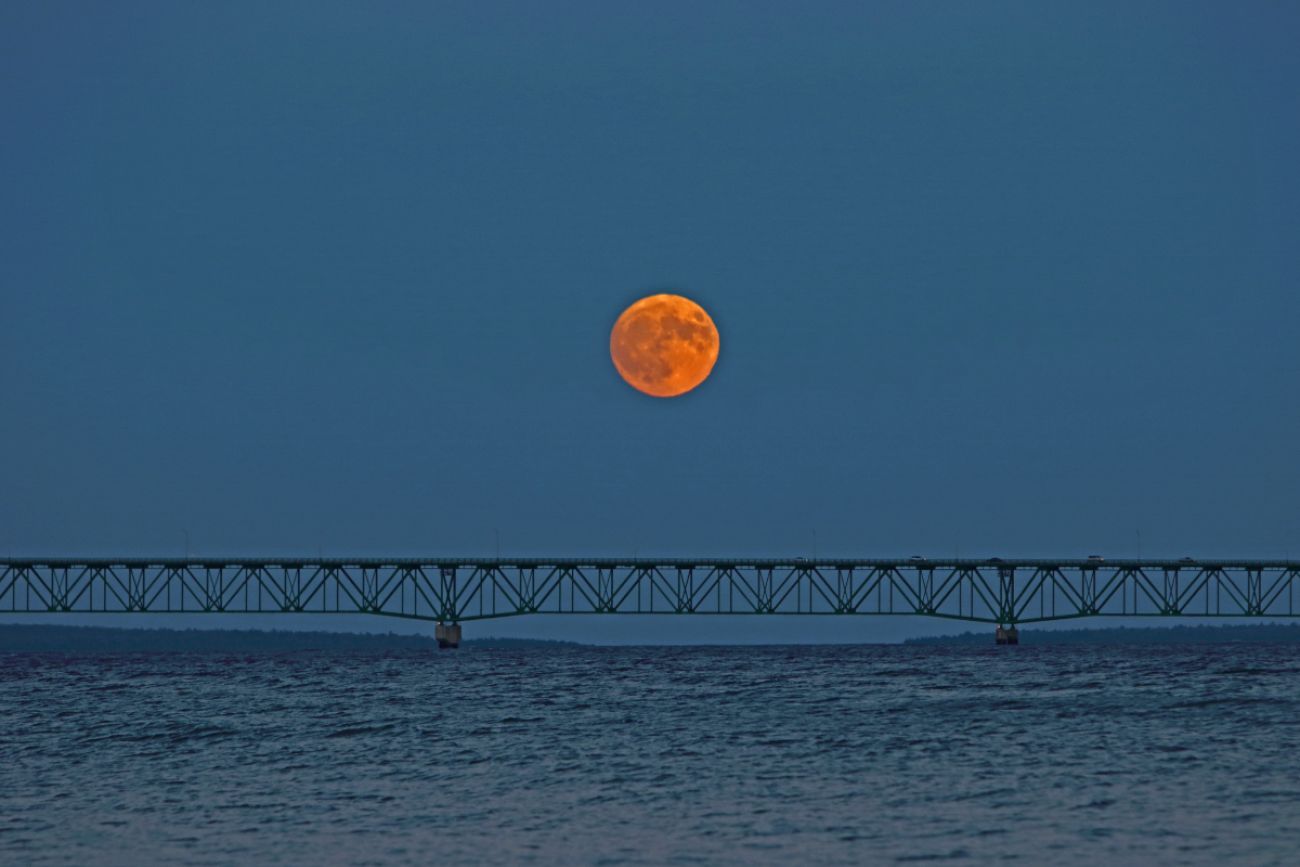Super blue moon visible Wednesday night. How to see it in Michigan

- A super blue moon will be visible for the last time until January 2037 on Wednesday night
- The celestial event happens when the second full moon of the month is closest to Earth
- Saturn will also be visible, about 5 degrees from the moon
A rare “super blue moon” will illuminate the night sky on Wednesday for the last time until 2037. The celestial event only occurs about every 10 years or so.
This is the second full moon of the month, which makes it a “blue moon,” named not by its color but by its rareness, hence the phrase “once every blue moon.”
Blue moons occur every two or three years. They can either be monthly — two full moons in one month — or seasonal, when there are four more blue moons in a single season instead of three.
Wednesday’s moon is considered a supermoon because it will be at or near its closest point to Earth at the same time as it is full, making it appear larger and brighter.
Supermoons can seem about 14 percent bigger than full moons, that occur farther from Earth. The next supermoon will be on Sept. 29, which will be the last for the year, according to NASA.
Only 25 percent of all full moons are supermoons, and only 3 percent of full moons are blue moons, according to NASA. The next super blue moons will occur in a pair, in January and March 2037.
“A super blue moon happens less than 1 percent of all full moons,” Seth Jacobson, assistant professor for the Department of Earth & Environmental Sciences at Michigan State University, wrote in an email to Bridge Michigan.
Related:
The life of Peanut: Inside the story of the world’s oldest living chicken
Michigan ‘river walker’ program warns anglers on eating contaminated fish
At long last, researchers discover diet of Michigan’s only venomous snake
“If someone lived until they were 80 years old, they'd only have the opportunity to witness about seven of these. It's [a] great opportunity to go out and look up.”
Despite its name, super blue moons aren’t blue unlike blood moons which appear to be red. Though, on rare occasions, dust particles can make the moon appear to be blue.
According to NBC, the meaning of a “blue moon” has undergone iterations over time and may have started in the 16th century when an adviser to English king Henry VIII wrote about enemies who “would have you believe the moon is blue.”
Also on Wednesday, about 5 degrees to the upper right of the moon, Saturn will appear, swinging clockwise around the moon. The planet will be visible to the naked eye, but viewers may need a telescope to see its seven rings.
Star watchers can look to the east-southeast horizon on Wednesday to see the super blue moon rising around 8:24 p.m. Eastern Standard Time, about an hour before the moon reaches its peak at 9:36 p.m.
“The super blue moon is a fun opportunity for people to look up and enjoy our nearest planetary neighbor and Earth's constant companion,” Jacobson said.
Michigan Environment Watch
Michigan Environment Watch examines how public policy, industry, and other factors interact with the state’s trove of natural resources.
- See full coverage
- Subscribe
- Share tips and questions with Bridge environment reporter Kelly House
Michigan Environment Watch is made possible by generous financial support from:
Our generous Environment Watch underwriters encourage Bridge Michigan readers to also support civic journalism by becoming Bridge members. Please consider joining today.
See what new members are saying about why they donated to Bridge Michigan:
- “In order for this information to be accurate and unbiased it must be underwritten by its readers, not by special interests.” - Larry S.
- “Not many other media sources report on the topics Bridge does.” - Susan B.
- “Your journalism is outstanding and rare these days.” - Mark S.
If you want to ensure the future of nonpartisan, nonprofit Michigan journalism, please become a member today. You, too, will be asked why you donated and maybe we'll feature your quote next time!






